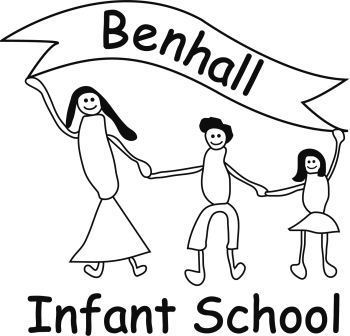Science At Benhall
At Benhall Infant School, we believe we should not teach the children the sciences but give them the taste of them (Jean Jaques Rosseau). All our children have the opportunity to experience being a scientist through bringing scientific enquiry skills to life in our specially designed lab and forest school area.
Key features of effective science teaching
We understand that children need to have knowledge of the sciences which can be embedded though the opportunity to test that knowledge through their own enquiry.
The key principles of effective science teaching includes:
- Nurturing the children’s curiosity
- Encouraging scientific thinking
- Integrating science with other subjects where natural connections occur
- maintaining pace of learning
- allowing the children to present their knowledge/ findings in their preferred style – connection to writing curriculum
- Continuous teacher assessment through objective led planning
- early identification of children at risk of falling behind, linked to the provision of effective interventions.
How we teach maths
- At Pre-School, children are exposed to the world around them and are encouraged to ask why questions to promote their curiosity. Adults support the children to answer these questions through research and simple investigations
- In reception science is threaded through provision to encourage the children to develop their curiosity and independent exploration of their environments. Teachers encourage scientific thinking through their questioning and carefully planned invitations to investigate.
- In KS1 the children and becoming more independent in responding to their natural curiosity. They are encouraged to formulate questions that build on the knowledge the teacher imparts during a science meeting. They are supported to make predictions and design fair tests to investigate their questions and support/disprove their predictions.
- Regular science inputs are used to teach the sequence of knowledge and skills within understanding the world (EYFS) and science curriculum (NC), building on prior learning.
- Science inputs last between 10 and 20 minutes.
- Provision activities, paired with objective led planning, facilitate opportunities for children to rehearse what they have learned. Teachers use these provision tasks to assess children against the learning objective – adding scaffolding to support or challenge.
- There is frequent opportunities for scientific enquiry
The child’s progression as a scientist
At Pre-school, I am a mini scientist who is showing curiosity in the world around me. My play is becoming more explorative as I begin to test the world around me. With the support of the adults around me I am beginning to voice my curiosity through asking questions. I notice changes in the world around me and respond with awe and wonder.
I am able to:
- Begin to use simple question words in relation to the world.
- Make simple observations.
- Begin to talk about why things happen.
- Begin to talk about how things work.
- Show an awareness of change e.g., snow melts, tadpoles turn into frogs.
- Predict what will happen in different situations e.g., if an ice-lolly is left in the sun it will melt.
- Notice and comment on patterns e.g., sorting materials on a material hunt.
- Show care and concern for living things.
In reception, I am an early scientist who is able to develop an inquisitive nature to explore the world around me. I will learn how to use my natural curiosity to ask how and why questions and be given the opportunities to explore these fascinations. I will use my senses and knowledge to find answers which in turn will deepen my understanding to make sense of the physical world.
I am able to:
- Ask questions about why things happen and how they work (why, what when questions).
- Begin to look more closely at things to make more detailed observations. (The cat is black and has fur).
- Talkabout why things happen.
- Talkabout how things work.
- Investigate objects and materials by using all my senses appropriately.
- Describe the texture, smell, and shape of things.
- Look closely at similarities between things and talk about them.
- Look closely at differences between things and talk about them.
- Look closely at patterns and begin to talk about them.
- Look closely at changes and begin to talk about them.
- Understand about seasonal changes and their regularity e.g., snow comes in wintertime because It's cold.
In KS1, I am scientist who uses my inquisitive nature to explore the world around me. I use my natural curiosity to pose questions and make predictions about their answers. I am inspired by the natural and manmade environments around me to investigate the world around me. I am excited by the possible outcomes of my scientific enquiries and can present my findings in a variety of ways. I enjoy sharing my findings with others. I am developing a resilience that allows me to redesign my investigation when it doesn’t go to plan.
I am able to:
- Ask simple questions and recognising that they can be answered in different ways
- Observe closely, using simple equipment
- Perform simple tests
- Identify and classify
- Use observations and ideas to suggest answers to questions
- gather and record data to help in answer questions.
